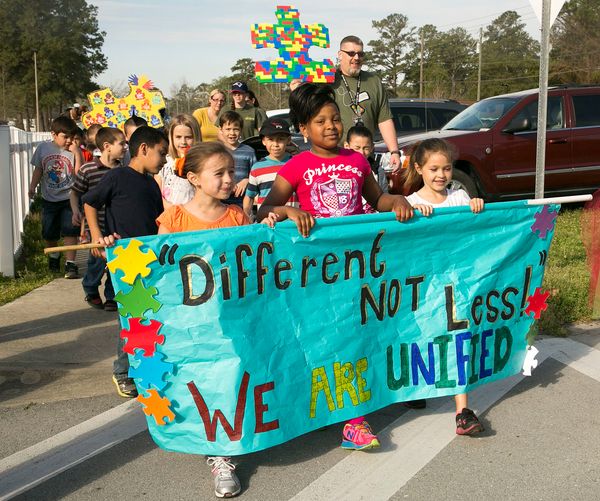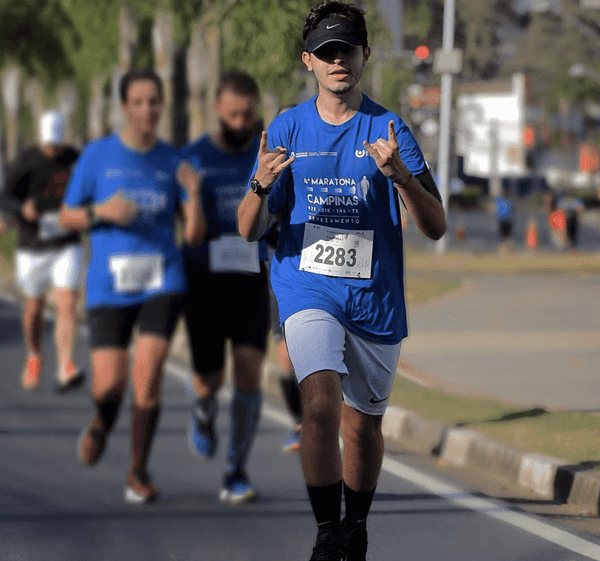Following up on last week's article on the neurological disorder Dyspraxia, this week I interviewed the head and founder of Dyspraxia USA, Warren Fried.
Odyssey: When did you first hear about Dyspraxia?
Warren Fried: I first heard about Dyspraxia when I was 19 years old in England. I gave the university my documents from the states as I was first listed as OHI (Other Health Impaired) and the University immediately informed me what all the components of my documentation meant and then ordered an educational psychologist to provide a diagnosis and then I was informed each county offered support groups.
O: What inspired you to start the foundation?
WF: I was inspired to start the Foundation after living in Southern England for 6 years. There I met the top experts on the condition and learnt how common the condition truly was. I also was able to meet many adults and teens in social situations. After realizing how common the disorder is 1 in 10 and how with Understanding, Support and Acceptance we can achieve so much! I came back to the states 6 years later and was amazed in a big city like Chicago nobody heard of it the next month at the age of 24 I formed the Foundation.
O: Is Dyspraxia more heard of in other countries?
WF: Dyspraxia has a much higher profile in Commonwealth countries as the UK Foundation has been running for 25 years.
O: Why do you think Dyspraxia is so unrecognized in America?
WF: Dyspraxia is so unrecognized in the states because the states judges from the outside and that makes it challenging living with a "Hidden Disorder" Also the fact components of the condition look like other disorders resulting in wrong and mis diagnosis and the fact its a condition of good and bad days so many are even dismissed to get an evaluation.
O: What is the best way to spread awareness in the United States?
WF: The best way to spread awareness about the condition in 2016 is via Social Media, Educational Systems and the Government. I have lectured to the DOE Special Education Programs and Services, I have worked non stop via social media and have been personally featured in ever US Media outlet but I need many more doing the same with me in there communities upon local and state level.
O: What's the funding for research like?
WF: Funding is a huge concern as I run the Foundation for 30 million on my own as I raise my twins. The funding is so low as its not even on the radar as a condition that needs funding for support due to mis and wrong diagnosis and the fact therapies are highly specific and very time consuming. Funding is vital I need help to continue to help so many
O: How do you think is the best way to raise awareness?
WF: The best way to raise awareness is to help me to hire others to help grow the Foundation. I need funding from a variety of local and state support systems. Reach out to your local government, reach out to your media, get me a group of experienced volunteers fight daily with me.
O: What do you think that the best treatments are for dyspraxia?
WF: There are so many treatments upon Dyspraxia which is different then DCD which impacts fine and gross motor only (OT AND PT support) when looking at Dyspraxia you are looking at Ocular motor (Behavioral Optometry) memory issues with psych support, judgments with CBT and psych support, Sensory a combo of OT and Psych support, CBT for Processing and Function delays, SLP for use of wordage in combo with individual social support and how to use the words and for the globally impacted child or adult SLP for oral motor production of speech.
O: What's on the horizon for the dyspraxia USA?
WF: Currently I am waiting for my footage from a documentary I participated upon at PBS. I believe this will help many people and have show to the media and large organizations my sample footage and they are excited to see more to help us grow and create a world were 1 in 10 is Understood, supported and accepted.
O: Is there anything else you would like to add?
WF: I just wanted to add DCD and Dyspraxia are very common disorders impacting 30 million US Residents its time we get the same awareness issues that are impacting a lesser population and the fact our therapies should be covered via insurance one wrong judgment and one wrong ocular decision is your life and these skills impact academics such as reading and making choices.
Dyspraxia is not as recognized in the United States even though it is as prevalent here as in other countries. Even with actor Daniel Radcliffe, model Cara Delivigne, and singer Florence Welsh from Florence and the Machine all open about having Dyspraxia, it is still largely unknown.





















